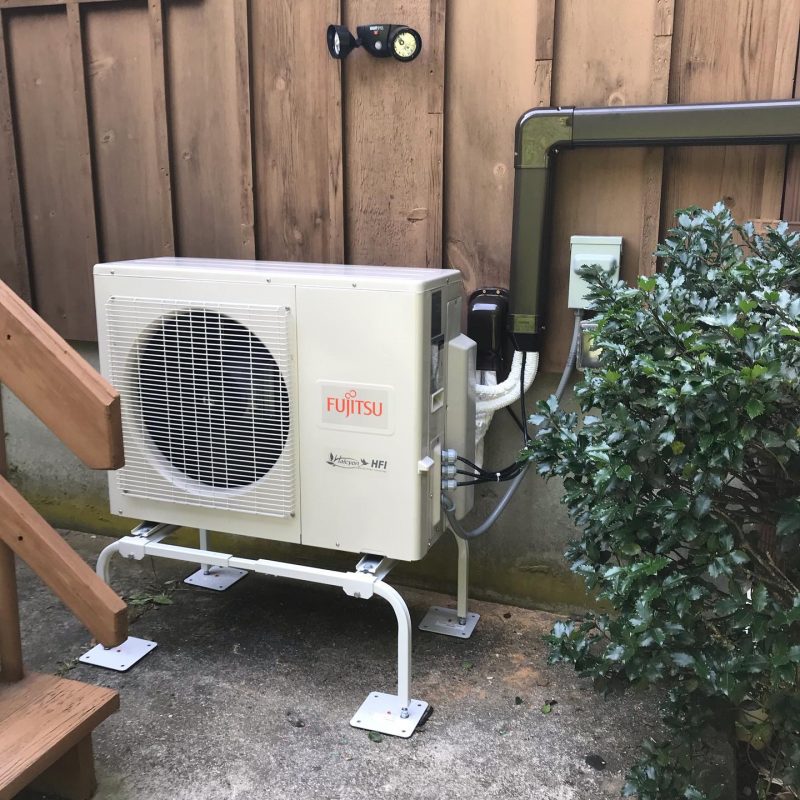A poorly maintained air-conditioning system can cost as much as 30% more to operate than a properly maintained system.
Improperly or poorly maintained air-conditioning systems can cost the consumer up to 30% more in energy costs than a well-maintained system. In addition to increased energy costs, these poorly maintained systems can cause discomfort, and in some cases, an increased medical cost due to allergies, colds, and time lost from work.
When the system is not working correctly, it will be required to run much longer in an effort to maintain comfort conditions within the building. This equates to additional energy consumption as well as unnecessary run times, resulting in a shortened life expectancy for the major components of the cooling system. Performing some simple annual maintenance on your air conditioning system will result in less energy consumed, along with a healthier, more comfortable indoor environment.
Most air conditioning systems consist of three or four major components. They have an air handler, which may be by itself, or may also serve as the air moving equipment for the heating side of the system, a compressor, a condenser, and an evaporator coil. All of these components must work with each other in order to deliver comfort at the lowest cost possible. Let’s start wit the air handler and work our way around the system.
The Air Handler. The air handler is the heart of the system. It’s the prime mover of air to ensure comfort throughout the building. The air handler is also known as the blower. It has a motor inside that may require regular lubrication. The motor may be connected to the squirrel cage blower by way of a belt. This belt must be properly adjusted in order to ensure it operates at peak performance. Too loose and you will waste energy. Too tight and you will cause roller bearings to wear out at an early age. It is important the squirrel cage blower be free of dust and debris. Brush lightly and vacuum clean with a good quality shop vac.
One of the more important parts of the air handler is the air filter. If neglected, the filter can cause many problems that will cost you money. Make sure it is replaced monthly during the operating season with a properly sized, properly rated filter. Also, make sure the filter fits properly so no air can bypass the air filter.
The Evaporator. The evaporator looks similar to the radiator on an automobile. Its job is to absorb heat out of the air and remove excessive moisture from the air. There is a pan located directly below the evaporator. This pan catches the drops of condensation that collect on the evaporators’ cool surface. It is important that this pan be kept clean. The drain line connected to it must flow freely and should end near a floor drain or other means o acceptable disposal. If there is an accumulation of dried scale in the pan, remove this by carefully vacuuming it with a shop vac. Cleaning this pan with a mild detergent and flush it with clear water to ensure proper drain operation.
Visually inspect all accessible duct work. Seal with appropriate duct sealants and have dirty ducts cleaned by a professional when necessary., Leaking ducts can substantially affect the overall performance of a cooling system, especially if they are located in an unconditioned area like an attic or crawl space.
Condenser/Compressor package. Visually inspect the remote compressor/condenser package. Make sure that the unit is not overgrown by bushes and/or ground cover, or that it is not covered with leaves or other yard debris. This is where the system rejects its heat to the outside. If it can’t breathe freely, the system will perform poorly.
Listen to the compressor and cooling fan while they are running. If they sound rough or vibrate excessively, contact a licensed heating/cooling professional to perform operational checks on the equipment to address any minor problems before they get too expensive. Preventative maintenance is the least expensive method of ensuring peak operation and maximum comfort levels within the home.
Some older units can show a significant reduction in operating costs and an increase in comfort levels by being replaced. Some utility companies offer significant rebate incentives for replacement with newer high-efficiency equipment. Consult your local licensed heating/cooling professional for more information.
Safety First. Air Conditioning units are powered with voltages up to 220 volts and if improperly handled, can result in serious injury or death. Be sure to call R&W for a thorough test and tune.

